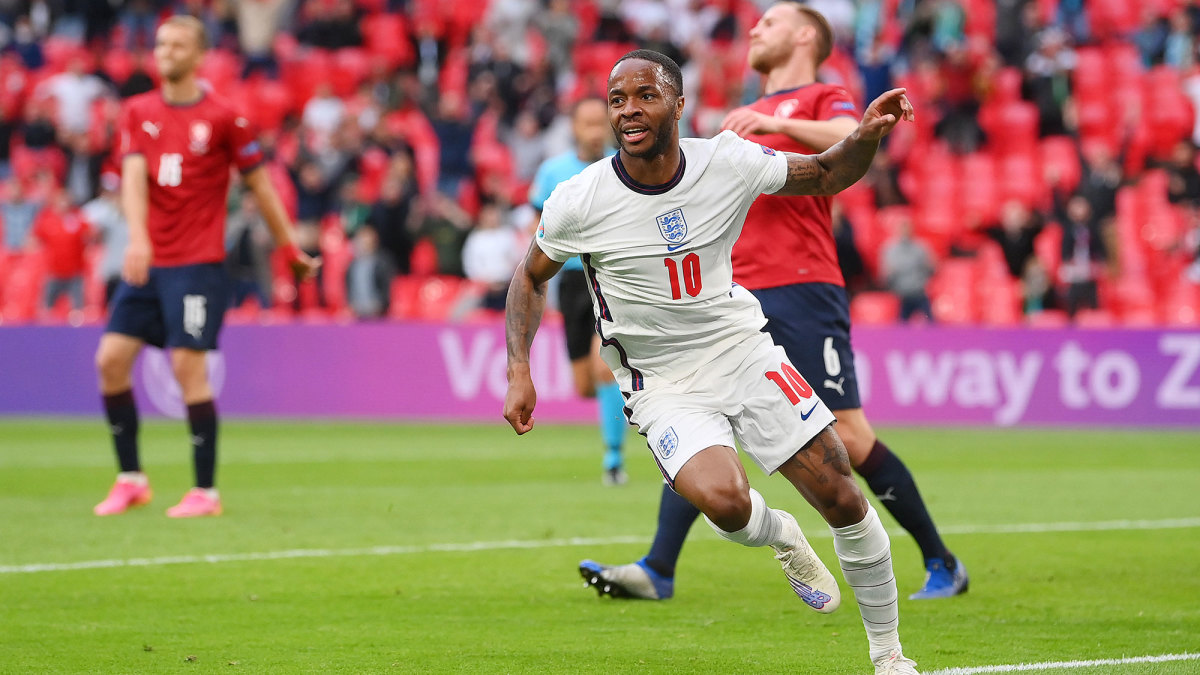England Tops Its Euro 2020 Group, but the Real Work Starts Now

Tuesday's 1–0 triumph over the Czech Republic was a win for England with an improved performance, and that was perhaps all that mattered. Jack Grealish got the start that so many had demanded and set up the only goal, but it was far from clear that he had done enough to secure his place in the starting XI for the last 16 of the European Championship. England topped its group, meaning its putative route through the knockout rounds would feature only one game away from Wembley Stadium, and it completed a first-stage group without conceding for the first time since the World Cup in 1966. But this still wasn’t the overwhelming or thrilling performance to silence the many doubters.
Perhaps that doesn’t matter. As Gareth Southgate has pointed out, tournaments tend to be won by the best defenses rather than the best attacks. And a different set of attributes is required to beat the very best sides than the level of opponent faced at this stage. Groups, fundamentally, are to be negotiated, and England managed that with a relative level of assurance, if not with much flair. The Czechs also progressed, but as the group's third-place finisher after Croatia beat Scotland, 3–1, in the group's concurrent finale to finish second.

England’s preparations had been hampered by the forced self-isolation of Mason Mount and Ben Chilwell after they were deemed to have been close contacts of Scotland’s Billy Gilmour, who tested positive for COVID-19 Monday. Mount and Chilwell, Chelsea teammates of Gilmour, spoke to him for 22 minutes in the tunnel at Wembley, a breach of the strict bubble protocols that allowed football to resume last June. No Scotland player, it’s understood, spent more than the maximum permitted 15 minutes in close proximity to Gilmour in an indoor space. The FA took the decision that Mount and Chilwell should isolate after consultation with Public Health England.
Given they only had a chance of returning for the last 16 if England won the group, Southgate left out Phil Foden in case he picked up a second booking to go with the one he got against Croatia; he couldn’t, he said, risk going into the last 16 without either of Mount and Foden, the two players who, in theory at least, have the tactical intelligence to link midfield and attack.
That meant a start for Bukayo Saka, and he was instrumental in England's taking the lead after 12 minutes. Raheem Sterling had already become the third Manchester City player to hit the post for England in the tournament when Saka led a surge down the right. He exchanged passes with Kalvin Phillips, and although his cross was too deep, the ball was kept alive for Grealish to dink a cross over goalkeeper Tomáš Vaclík for Sterling to nod in.
GOAL #ENG! RAHEEM STERLING! He heads home at the back post off Jack Grealish's assist, minutes after hitting that same post with a second-minute chance. It's 1-0, and the Three Lions provisionally roar to the top of the group #EURO2020
— SI Soccer (@si_soccer) June 22, 2021
(via @TUDNUSA) pic.twitter.com/lqOMznMEPX
In those early minutes there was a sense of England with the hand brake off. The shape was more of a 4-2-3-1 than the 4-3-3 of the first two games, with Sterling operating centrally. Saka offered a balance on the right that Foden, who drops off and likes to come infield and is very left-footed, doesn’t, and Grealish’s pace in possession was a feature on the left. The fullbacks, similarly, were more aggressive than they have been, while Phillips got forward to support the attack as he had against Croatia but hadn’t against Scotland.
That was the positive spin. But the Czechs pushed far higher than either Croatia or Scotland had, and that meant there was space for England to run into. It’s easy to imagine Mount and Foden also relishing, not just running into a low block. The passing ability of Harry Maguire, restored to the back four after an injury, also meant England got the ball forward quicker, making it easier to expose the Czechs before they could reset.
It was far from all perfect, though. England, for the third game in a row, faded after a promising start. Against Croatia and Scotland that had led to the game's becoming clogged up, but defensively England had remained relatively solid: The expected goals against of 1.0 over the first two matches was the second-best in the tournament. Tuesday, England began to concede chances. Jordan Pickford made a fine save from Tomáš Holeš, Tomáš Souček squeezed an effort just wide and every cross caused consternation.
Elsewhere, there were the first minutes of the tournament for Jordan Henderson, who was brought on at halftime. A flurry of substitutions—including the introduction of Jadon Sancho to the tournament with six minutes to play—rather ruined any attacking rhythm, but there was perhaps encouragement to be drawn from the way England closed the Czechs down. It may not have threatened, but nor was it threatened, and after a first half that was perhaps a little too open, that could bode well.
By winning the group, England has, most likely, a more difficult last-16 opponent than if it had gone through as a runner-up, with the second-place finisher of the France-Portugal-Germany-Hungary group the next to come to Wembley. The trade-off for what is likely to be a tougher opponent is the luxury of staying home, and Mount and Chilwell most likely being available. But either way, the real work starts now.
More Euro 2020 Coverage:
